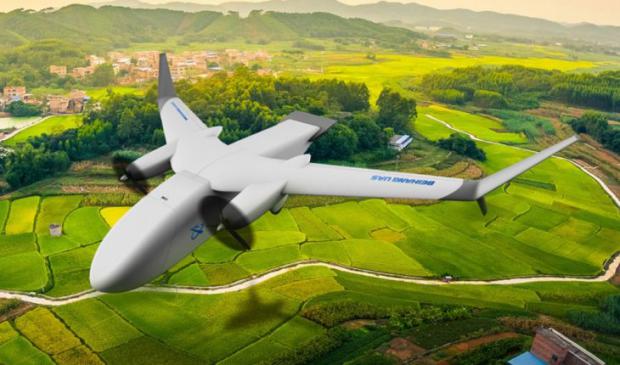
Breaking News
 Alternative Ways to Buy Farmland
Alternative Ways to Buy Farmland
 LED lights are DEVASTATING our bodies, here's why | Redacted w Clayton Morris
LED lights are DEVASTATING our bodies, here's why | Redacted w Clayton Morris
 How My Youtube Channel Makes Money
How My Youtube Channel Makes Money
Top Tech News
 Travel gadget promises to dry and iron your clothes – totally hands-free
Travel gadget promises to dry and iron your clothes – totally hands-free
 Perfect Aircrete, Kitchen Ingredients.
Perfect Aircrete, Kitchen Ingredients.
 Futuristic pixel-raising display lets you feel what's onscreen
Futuristic pixel-raising display lets you feel what's onscreen
 Cutting-Edge Facility Generates Pure Water and Hydrogen Fuel from Seawater for Mere Pennies
Cutting-Edge Facility Generates Pure Water and Hydrogen Fuel from Seawater for Mere Pennies
 This tiny dev board is packed with features for ambitious makers
This tiny dev board is packed with features for ambitious makers
 Scientists Discover Gel to Regrow Tooth Enamel
Scientists Discover Gel to Regrow Tooth Enamel
 Vitamin C and Dandelion Root Killing Cancer Cells -- as Former CDC Director Calls for COVID-19...
Vitamin C and Dandelion Root Killing Cancer Cells -- as Former CDC Director Calls for COVID-19...
 Galactic Brain: US firm plans space-based data centers, power grid to challenge China
Galactic Brain: US firm plans space-based data centers, power grid to challenge China
 A microbial cleanup for glyphosate just earned a patent. Here's why that matters
A microbial cleanup for glyphosate just earned a patent. Here's why that matters
 Japan Breaks Internet Speed Record with 5 Million Times Faster Data Transfer
Japan Breaks Internet Speed Record with 5 Million Times Faster Data Transfer
Alibaba and JD.com invest billions in drones and robots working to global delivery under 72 hours

Robots and drones for delivery were all over the annual Global Smart Logistics Summit. Several automated guided vehicles (AGVs), reminiscent of Roomba's robot vacuum cleaners, were moving metal racks stacked with piles of boxes. There were autonomous drones that can carry a payload of as much as a metric ton to self-driving carts that can move along streets to deliver an array of packages to different customers.
Alibaba's founder and executive chairman Jack Ma Yun wants to bring global delivery times for his logistics affiliate to under 72 hours – and he will invest over a hundred billion yuan to achieve this.
China's courier industry has boomed over the last few years in line with the rise of e-commerce, with around 130 million packages now delivered to consumers in China every day – the highest number globally, according to Alibaba's Jack Ma.
Today, the combined market cap of Chinese courier firms SF Express, ZTO Express, STO Express, YTO Express, Best Inc, Yunda Express, and Deppon Logistics adds up to about US$82 billion.

JD.com and Alibaba logistics
JD.com and Alibaba are going down different paths to build their logistics infrastructure.
Alibaba, which traditionally favors an asset-light approach, in 2013 established its logistics affiliate Cainiao, which partners with delivery companies to produce an open source, standardized logistics process that can provide insights to increase productivity. JD.com decided to build a proprietary logistics network, constructing warehouses and hiring large fleets of deliverymen to service customers across the country in a model similar to Amazon in the US.
Alibaba took a controlling stake in Cainiao last September, it said that it would invest 100 billion yuan (US$15.6 billion) in building an efficient logistics network that would allow packages to be delivered within China in 24 hours, and globally within 72 hours.
As part of its efficiency drive, Cainiao has invested heavily in developing technologies with partners such as Quicktron, deploying automated guided vehicles (AGVs) that can carry shelves stocked with half a metric ton of goods.

 No Excuses: Throw A Party!
No Excuses: Throw A Party!


